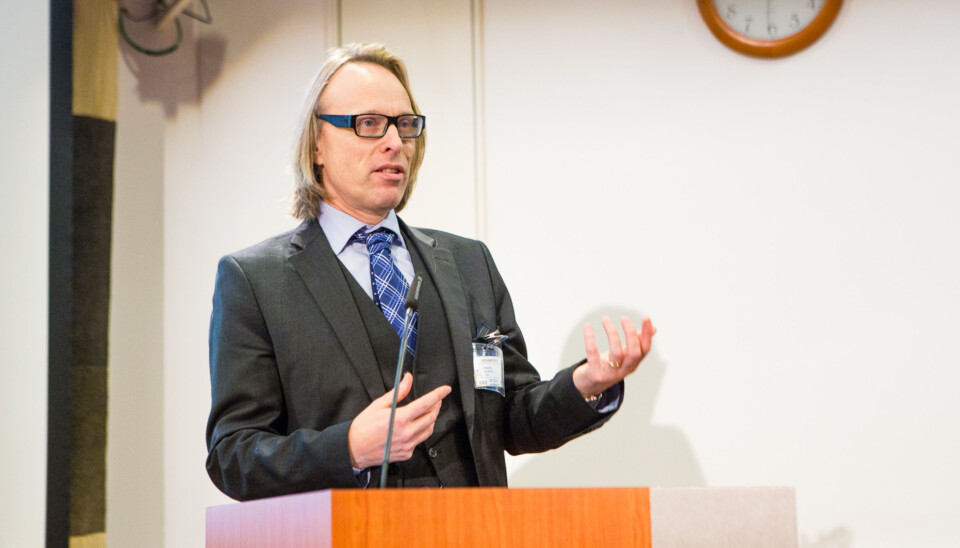
Academics who Care
We have seen research and the scientific approach declared unwanted by senior politicians. So what do we do now, asks Vice-Rector at HiOA, Morten Irgens.
OBS! Denne artikkelen er mer enn tre år gammel, og kan inneholde utdatert informasjon.
The word of the year in 2016, according to Oxford Dictionaries, was «post-truth», which they defined as the situation when «objective facts are less influential in shaping public opinion than appeals to emotion and personal belief».
In Germany, the Gesellschaft für deutsche Sprache selected the essentially same word, «postfaktisch», while the Cambridge Dictionary chose «paranoid», and Dictionary.com went for «xenophobia».
My favorite word of 2016, however, was Merriam-Webster’s selection of «surreal» (narrowly winning over «fascism»). According to the US dictionary, it was looked up significantly more frequently than previous years.
A month into 2017, and the world seems even more «marked by the intense irrational reality of a dream». This is of deep importance for our universities, society’s proud defenders and proponents of reason.
We have watched as even the pretense of fact and reason has disappeared from parts of the public debate. We have seen research and the scientific approach declared unwanted by senior politicians. So what do we do now?
We have seen research and the scientific approach declared unwanted by senior politicians. So what do we do now?
Morten Irgens
1. Keep a clear purpose: It seems more important than in a long while that universities and colleges rememebr their real purpose. Which is? Making the future better, by developing and communicating knowledge.
2. Defend reason: The purpose of universities and colleges means that they are defenders of and proponents of truth and reason. The heritage of the Age of Enlightenment, which includes knowledge, scepticism and reasoning based on cause and effect, has lead to democracy, tolerance, modernism, the rule of law and the scientific method. The world of today reminds higher education institutions that they can never stop defending this heritage.
3. Teach ethics: When politicians didn’t mind repeatedly being caught, ethics must be the core of any curriculum. And not only ethics as a subject of philosophy, but ethic as a practical tool for living a good life, further a sustainable career and building healthy societies.
4. Teach critical thought: Have our higher education institutions done enough to teach students critical thought and provide them with the intellectual tools that help distinguish lies and demagogy from facts?
5. Internationalize: As populist nationalism is spreading, internationalization of higher education becomes even more important. Our grand challenges are global and international, and can only be addressed through international collaboration. Internationalization of academia strengthens the quality of research and education, links industry and academia together across borders, increases innovation and value creation. Internationalization also increases students’ understanding of the complexities of political choices in general and transnational challenges and opportunities in particular.
6. Get engaged: The scientific community must find practical ways to follow up their commitment to purpose, and engage stronger in the democratic endeavour and the democratic debates. And as with much work in academia these days, there should be a healthy attention to maximizing impact.
7. Communicate better: Scientists publishes around 1.5 million papers in 2016. Most of these were only read by the authors and the reviewers. Most never leave the ivory tower. We need to think deeply about this. Impact does not only mean impact in academia, but impact in society. To achieve that, we must become better communicators.
8. Restore trust: Trust in science and expertise has suffered, and an anti-intellectual flavour has settled in public life. Such scepticism is not entirely unjustified. Particularly when we wade into the public political debate, there is a hint of smug elitist, anti-populist smirk on our faces as we claim ethical privilege, maintain an idealised vision of science and scientist, label other perspectives as “anti-science” or “post factual” and are blind to our own confirmation biases.
9. Keep to your area of expertise: Academics use their titles and positions to give their arguments authority, even when venturing away from their fields of expertise. Should scientists only advocate from within the confines of their own specialised knowledge? If we don’t, are we undermining the authority of science and scientists and contribute to a growing rejection of “experts” among politicians and voters?
10. Yes, it applies to you, too: Of course, I am no exception. Yes, when I use the word “post factual”, I do imply that my opponents don´t have the facts, and that I, in contrast, do. Yes, in this article, which needs a punch to be read, I elevate my worldview to the level of transcendental truth. Yes, here I have used my professional title to put weight behind my arguments, and also get readers. Yes, here I do talk about things that are not my field of research (my field is computer science).
The article was first published on Morten Irgens’ blog.






Logg inn med en Google-konto, eller ved å opprette en Commento-konto gjennom å trykke på Login under. (Det kan være behov for å oppdatere siden når man logger inn første gang)
Vi modererer debatten i etterkant og alle innlegg må signeres med fullt navn. Se Khronos debattregler her. God debatt!